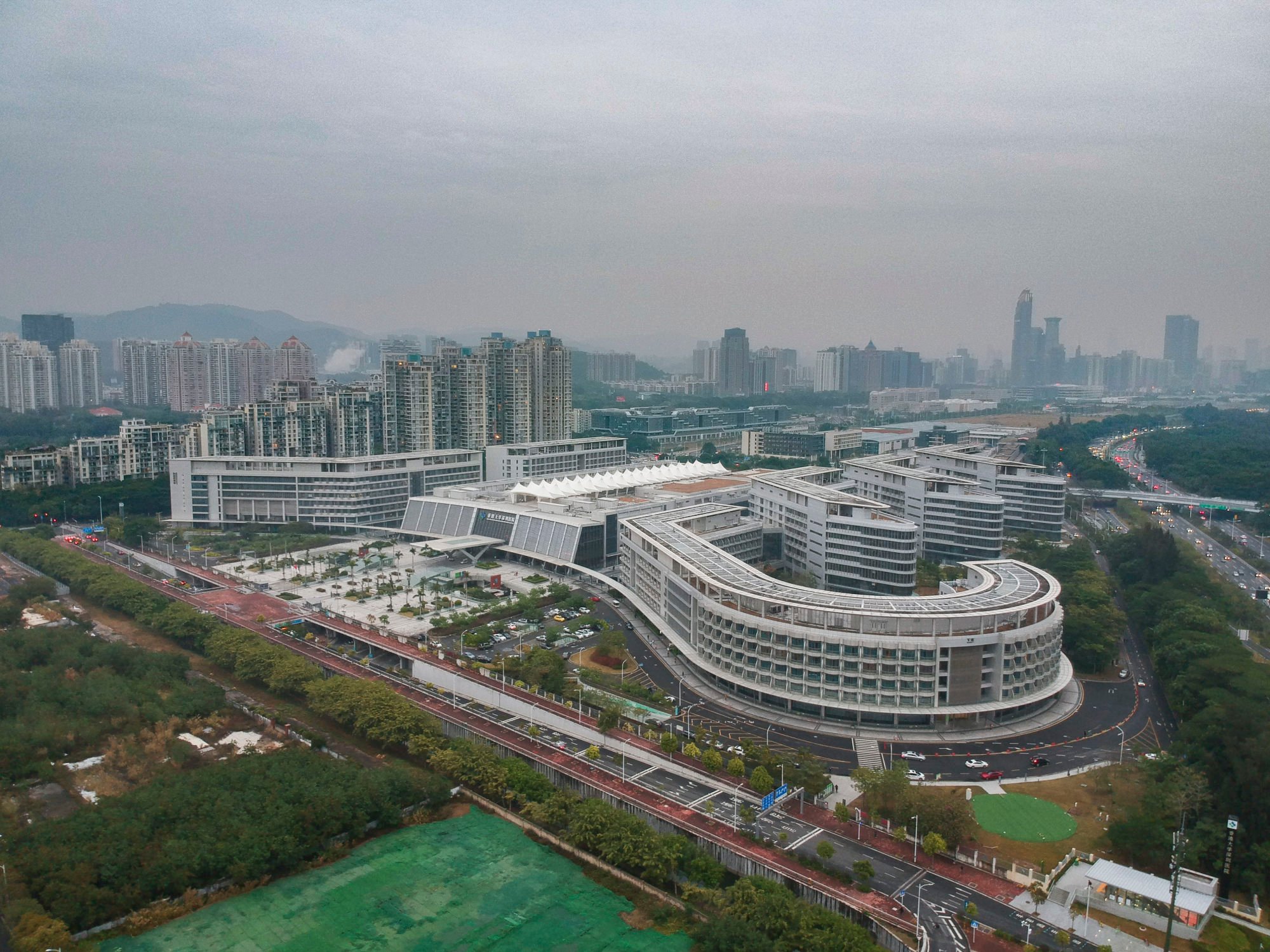John Lee policy address 2023: Hong Kong banks on cross-border collaboration to boost medical innovation hub ambitions

[ad_1]
Hong Kong is stepping up collaborations with neighbouring mainland Chinese cities in a push to become a health and medical innovation hub as outlined in the national development plan.
Among measures announced by Chief Executive John Lee Ka-chiu in his second policy address on Wednesday was the establishment of the Greater Bay Area International Clinical Trial Institute in the Hetao Shenzhen-Hong Kong Science and Technology Innovation Cooperation Zone next year.
It is part of the city’s efforts to develop its own drug approval system in the long run and will be a one-stop clinical trial support platform for medical research institutions.
“The institute will coordinate clinical trial resources in the public and private healthcare sectors in Hong Kong, including researchers, supporting services, data banks, sample banks, laboratories, etc,” Lee said.
6 key takeaways from Hong Kong leader John Lee’s policy address
6 key takeaways from Hong Kong leader John Lee’s policy address
It will also help explore cooperation with networks of clinical trials in the mainland, especially in the Greater Bay Area, which comprises Hong Kong, Macau and nine cities in Guangdong province.
Welcoming the move, Sabrina Chan So-kuen, senior executive director of the Hong Kong Association of the Pharmaceutical Industry, said it would help combine biomedical research strengths from both sides of the border.
She said Hong Kong had many renowned researchers and good clinical trial centres, while the mainland had a bigger pool of patients for trials.
“The development is a win-win situation,” Chan said. “When clinical trials are done together, researchers from both sides could have more exchanges. There is a synergy from such collaboration.”
Professor Ronald Ma Ching-wan, co-director of Chinese University’s faculty of medicine biobank, said the proposed new institute could facilitate collaboration between scholars in Hong Kong and the mainland, promoting biomedical research development in the area.
He said there could be more local collaborations with the hospitals and universities in the Greater Bay Area to develop large-scale and multi-centre studies or clinical trials.
Ma, who is also the university’s head of endocrinology and diabetes, said Hong Kong had a good track record of taking part in international large-scale clinical trials, a high level of experience and strong reputation.
“It may attract overseas large-scale clinical trials to collaborate with mainland partnering centres through the institute, where Hong Kong can play a leading role in coordination,” he added.
Change rules so more Hong Kong doctors can work on mainland: ex-health secretary
Change rules so more Hong Kong doctors can work on mainland: ex-health secretary
City leader Lee also announced a pilot scheme to extend the use of elderly healthcare vouchers to “about five” medical institutions across the border. It would also cover some dental services in places near Hong Kong, such as Shenzhen.
A government source said the scheme was expected to be implemented next year, and factors including the institutions’ location, familiarity with the vouchers and ability to provide additional services would be considered.
Since 2015, elderly Hongkongers have been able to use their healthcare vouchers for outpatient treatment at the University of Hong Kong-Shenzhen Hospital.
Authorities would procure healthcare services from “suitable” healthcare institutions, such as the HKU-Shenzhen Hospital, to ease the pressure on the city’s public healthcare system and reduce patients’ waiting time.

The source said authorities were aiming for low-risk services such as imaging and endoscopy.
Cases of medical blunders would be followed up by the Hospital Authority, which oversees all public health institutions in Hong Kong, the source said, while mainland authorities would handle such cases under their laws.
To encourage more medical collaboration within the bay area, the health authorities would also further develop the city’s existing eHealth mobile application.
Residents would be able to keep their digital health records in the app and take the information with them wherever they went.
The government source said more data such as test results and scan images could be uploaded to the app next year.
Hong Kong should ‘take lead to bring mainland healthcare on par with city standard’
Hong Kong should ‘take lead to bring mainland healthcare on par with city standard’
Patients’ rights advocate Tim Pang Hung-cheong, from the Society for Community Organisation, said expanding the use of healthcare vouchers only helped those needing primary healthcare services, but did not address the needs of Hongkongers who lived on the mainland and had to be warded.
He also questioned whether procuring more hospital services across the border could help reduce waiting times in Hong Kong.
“I believe not many Hong Kong patients will go to the mainland for the services,” he said, adding that it would be inconvenient for family members to go to the mainland to help care for a patient.
In his address, city leader Lee also said that with the Covid-19 pandemic over, the government hoped to strengthen Hong Kong’s capacity to combat communicable diseases, in areas such as surveillance, early warning, prevention and control.
Hong Kong to set aside HK$10 billion for new fund to support emerging industries
Hong Kong to set aside HK$10 billion for new fund to support emerging industries
The Hong Kong Jockey Club revealed on Wednesday that it would donate HK$3 billion (US$383 million) for three major parts of the effort.
The government source said HK$1 billion would go to the Health Bureau and the Centre for Health Protection to strengthen preparedness for future outbreaks, and this would be part of an effort to strengthen regional cooperation in the Greater Bay Area.
The rest of the money, which would not involve the government, would go towards setting up the Jockey Club Global Health Institute, a joint effort between University of Hong Kong, University of Cambridge and the International Vaccine Institute headquartered in South Korea.
The club said the institute would bring the latest vaccine technology to Hong Kong and boost the development of the local and regional vaccine industry.
Part of the funding would also go towards training healthcare professionals in the bay area over five years.
[ad_2]
Source link





